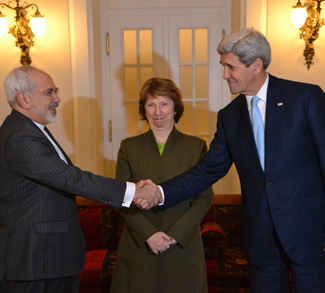It will soon be a year since the July 2018 Mexican presidential elections that saw Andrés Manuel López Obrador (AMLO) become the new head of the executive. Has he lived up to the expectations seven months after his inauguration? His popularity is real for now, it is largely based, however, on promises that have not yet been fulfilled, and that perhaps will remain that way for his term.
One of the most striking features of his term so far is the fact that AMLO has displayed a serious disinterest in foreign affairs. AMLO won’t be attending the G-20, nor the WTO General Council Meeting to be held later on this year in Japan and Switzerland. This move risks the international presence of Mexico in the world. AMLO simply passed on the opportunity to negotiate potential trade deals with world leaders and show the world that he is indeed dissimilar from the mainstream populists his outspoken opponents associate him with.
He has also effectively taken Mexico out of key regional groups in Latin America: Until his inauguration day, on December 1, 2018 Mexico had played a central role in the Lima Group, formed by Argentina, Brazil, Canada, Chile, Colombia, Costa Rica, Guatemala, Honduras, Mexico, Panama, Paraguay, and Peru, Guyana and Saint Lucia – countries pushing for the restoration of democracy, peace, and security in Venezuela. Mexico has stopped participating in most of the Group’s meetings. Mexico has also stopped its active participation in the International Contact Group on Venezuela that seeks a negotiated solution to the Venezuelan problem. This group was the result of a conference jointly sponsored by the governments of Mexico and Uruguay; it includes other countries such as Bolivia, Costa Rica, Ecuador, France, Germany, Italy, the Netherlands, Portugal, Spain, Sweden, and the United Kingdom. AMLO has then pulled Mexico out of two of the most important international groups dealing with one of the most pressing issues in Latin America.
AMLO has self-imposed an awkward international isolation that has left Mexico in a fragile diplomatic position and has undermined Mexican strength to defend from Trump’s threats and tantrums.
It is hard to understand AMLO’s inward-looking strategy. Mexico has let the opportunity go to form alliances with Europe, China, or other countries suffering from Trump’s equally protectionist foreign policy. The Mexican president during his first seven months in power has not made a single trip abroad, nor did he visit any countries prior to his inauguration. AMLO seems determined to isolate Mexico from the international community for the sake of his increasingly worrying populist-like policies at home. Mexico and the United States have built a very odd political and economic marriage. They both share an insistence to put their own country first. Alike Trump, AMLO claims that his supporters have been mistreated by past administrations and economic and political elites. Similarly, both also have very little patience for established norms, institutions, checks and balances.
The Mexican president during his first seven months in power has not made a single trip abroad, nor did he visit any countries prior to his inauguration.
AMLO has also made domestic governmental austerity another of his core administration values. If well-targeted, following years of financial profligacy, this would be a more than welcome initiative. But AMLO’s austerity has been ill-targeted and nonsensical. The way he allocates funds seem to follow a vengeful and populist attitude aimed at appeasing his electoral base that elected him. He has lowered wages; he has fired a large number of civil servants and has slashed the budgets of several ministries and organizations to centralize spending and fight public sector corruption. Health, Science and Technology, Home Affairs, the military have all faced severe budget cuts. He also cancelled the construction of Mexico City’s airport, which had already been partially built, at an enormous cost. Mexico’s economic growth is slowing down, and the current administration’s ill-planned decisions will mean that AMLO will face tighter budget constraints than previous administrations.
The two most worrying aspects of AMLO’s administration so far are the hyper-centralization that he has carried out to return all the threads of power to presidential hands; and his absolute control of the Congress, meaning that they are able to amend the Constitution in any way they please. He is also attempting to establish a parallel system of power and government in each of the 32 states by naming a personal delegate. Such delegates will oversee the disbursing of federal funding, becoming de-facto local officials accountable only to the president. He is also intending to pull back funding from pre-existing social programs for victims of domestic violence, nurseries, and sport and academic activities.
AMLO’s strategy is nothing new. It bears a striking resemblance to the PRI’s heyday when the party kept a tight control over every sector of society. This power grab has been accompanied by an aggressive expansion of his political base. He has been handing out monthly stipends to nearly 10 million retirees, more than 7 million young people, and disabled that made up a large portion of his electorate. He also sacrificed the Education Reform to gain the loyalty of one of Mexico’s most numerous, corrupt and politically influential trade unions, the National Trade Union of Teachers (SNTE). All these policies are a throwback to Mexico’s old politics of clientelism, nepotism, and authoritarianism.
Security and violence also remain as one of the most pressing issues in contemporary Mexico and that the last three administrations have been unable to thwart. AMLO’s strategy seems equally doomed to fail as he offers nothing new. None of his current plans will mean a real difference without a radically different approach to the justice and rule of law system and institutions currently in place. He needs the political will to build the capacity for real independent prosecution, and an internationally backed commission against corruption, impunity and human rights violations would be AMLO’s best chance to keep violence and security from ruining his other priorities.
Many of the current administration plans will, in all likelihood, fail to come to fruition. The popularity of AMLO is not rooted, however, in good economic decisions, nor in confidence in its government. In Mexico, popularity does not go hand in hand with governmental efficiency and effectiveness. Nevertheless, his popularity will soon end when people realize that he is unable to solve Mexico’s myriad of problems. The inability of the current administration to deal effectively with pressing challenges will only expose the country to greater domestic and international vulnerabilities.
AMLO might be on a dangerous path towards a point of no return. He continues to display authoritarian, demagogic inclinations, and there are virtually no counterweights as political opposition is in disarray. He, nonetheless, lacks the strong economic backup that once sustained the regime of the old state party, the Institutional Revolutionary Party (PRI). Therefore, he is forced to look for alternative ways to fund his ambitious political project or he will be doomed to fail. In the end, finances will make or break him. Maintaining a patronage network to obtain votes require serious financial backing. With sufficient funds at his disposal, he could solidify his electoral base for years; without it, his popularity and power will slowly erode. The damaging consequences to Mexico’s fragile institutions will last though as democratic checks and balances are harder to build than to break as the slow, protracted consolidation of democracy in Mexico has shown.
The views expressed in this article are those of the author alone and do not necessarily reflect Geopoliticalmonitor.com or any institutions with which the author is associated.




